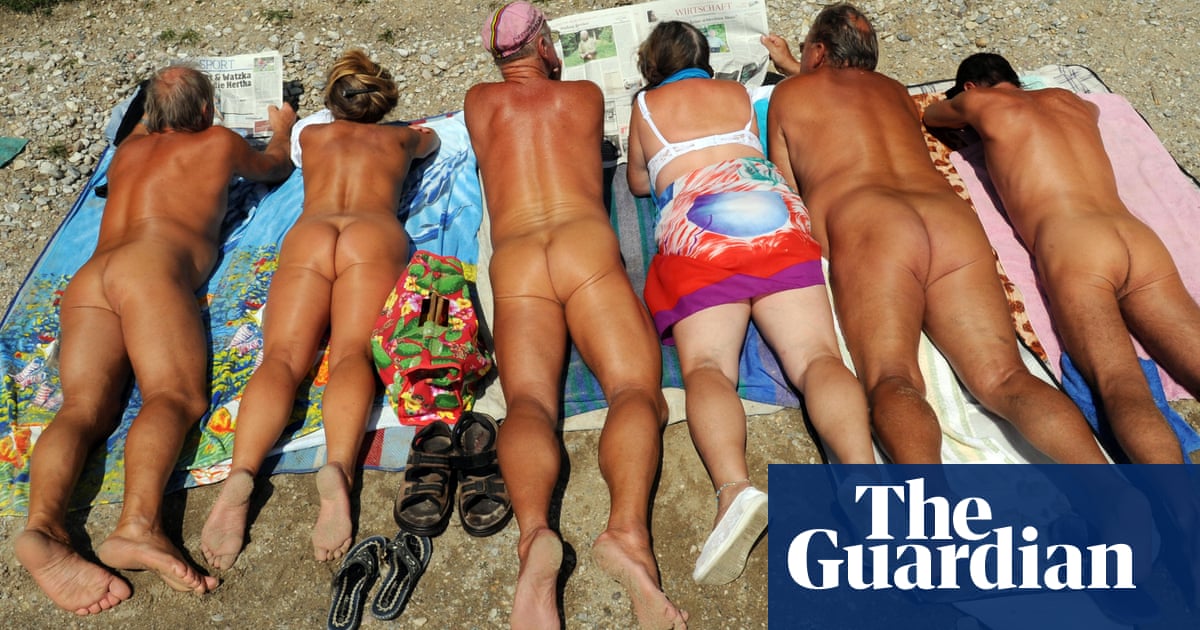
An organisation promoting nudity and a self-confident approach towards the body in Germany has sounded the alarm over the future of naturism in the country.
The German Association for Free Body Culture (DFK), an umbrella organisation for myriad naturist interest groups, has told its members that celebrations in August marking the anniversary of its creation will no longer go ahead owing to a lack of interest.
Membership of the DFK has slumped from 65,000 people 25 years ago to fewer than 34,000 now, with many remaining members said to be losing interest.
Germany is one of the most liberal countries in the world for public nudity. Places are often reserved for naturists in parks and on beaches and there is a high tolerance towards communal mixing among the dressed and undressed.
Disciples of the movement revel in the life-affirming freedom of being nude together across the generations, as well as the health benefits they say it brings, including mental wellbeing, in part from shedding the sense of shame around nakedness.
There are many reasons for the drop in interest, according to Alfred Sigloch, president of the DFK, including everything from conflicts between the generations and a lack of willingness among younger naturists in individual clubs to stick to older members’ rigid rules, “such as specified afternoon nap or quiet times”.
The prevalence of digital technology was putting some people off, Sigloch told German media this week, including the fear by nude bathers of being caught by people taking sneak pictures on mobile phones or via drone cameras and putting them on social media.
“The rise of the cult of the perfect body on TikTok or Instagram is increasing the pressure to not want to undress,” Sigloch added.
The origins of Germany’s free body culture (Freikörperkultur in German, or FKK for short) go back to the late 19th century and a social movement that was critical of materialism and industrialisation. In the early 20th century, free body culture became more widespread, offering a healthy alternative to the detrimental and restrictive industrial life of towns and cities. FKK flourished in particular in the lakeside resorts around liberal Berlin, as well as on Germany’s Baltic and North Sea coasts.
While largely frowned upon during the Nazi era, the strong association between nudity and freedom made the trend particularly popular in communist East Germany. The population may have been restricted in many ways – in everything from freedom of speech to the ability to travel, and even from taking inflatable swimming rings or lilos into the sea in case they tried to escape – but people had a strong sense of exercising their free will when it came to summer holidays by being allowed to take off their clothes on beaches or campsites without legal restrictions.
Sigloch said the rise in the popularity of glamping was partly responsible for FKK-dedicated holiday sites closing down, because campsite owners were able to make more money from higher-paying campers wanting a more luxurious experience than from naturists.
He warned that individual clubs were haemorrhaging members, with some forced to close. But he has pledged to confront the issues in order to revive the movement. “We will fight to keep onboard every single naked person who wants to be with us,” he said. “FKK is an ancient culture that cannot and will not die.”
Sigloch said he remained optimistic not least because many nudist clubs had seen an uptake of interest during the Covid crisis. The number of members in the federal association had fallen as low as 30,000 five years ago but had grown to almost 34,000 since the pandemic.
after newsletter promotion
“This can be attributed, among other things, to the fact that the pandemic has encouraged many people to seek alternative and healthy outdoor leisure activities,” he said.
Kerstin, 65, a retired confectioner who said he had practised FKK “all my life” but was not in an official club, said she would continue to bathe in the nude on regular trips to Germany’s Baltic coast “until my dying day”.
“But while I used to be one of the many and didn’t stand out at all, I notice now there are fewer and fewer of us,” she said. “Some people are worried about skin cancer, others have just become more prudish, I think, which is a shame, because it’s nothing to do with sex or prurience and everything to do with health and freedom. Sometimes I now get pointed at on the beach because people find it not to their liking. That never used to happen.”
In a plaintive message to its members announcing it was calling off the anniversary celebrations, the DFK leadership said: “Unfortunately we have had too few registrations for our celebration, so … with a heavy heart we have had to make the decision to cancel it. The costs relative to those who would have participated were simply too high.”
However, advocates say all is not lost. Upcoming events for the FKK community include the 15th international naturist run on the Baltic coast on 27 July, Nackt ins Watt, a naturist mudflat hike in Dithmarschen on the North Sea coast on 17 August, and later this month, in locations across Germany, the DFK’s FKK swimming championships.








